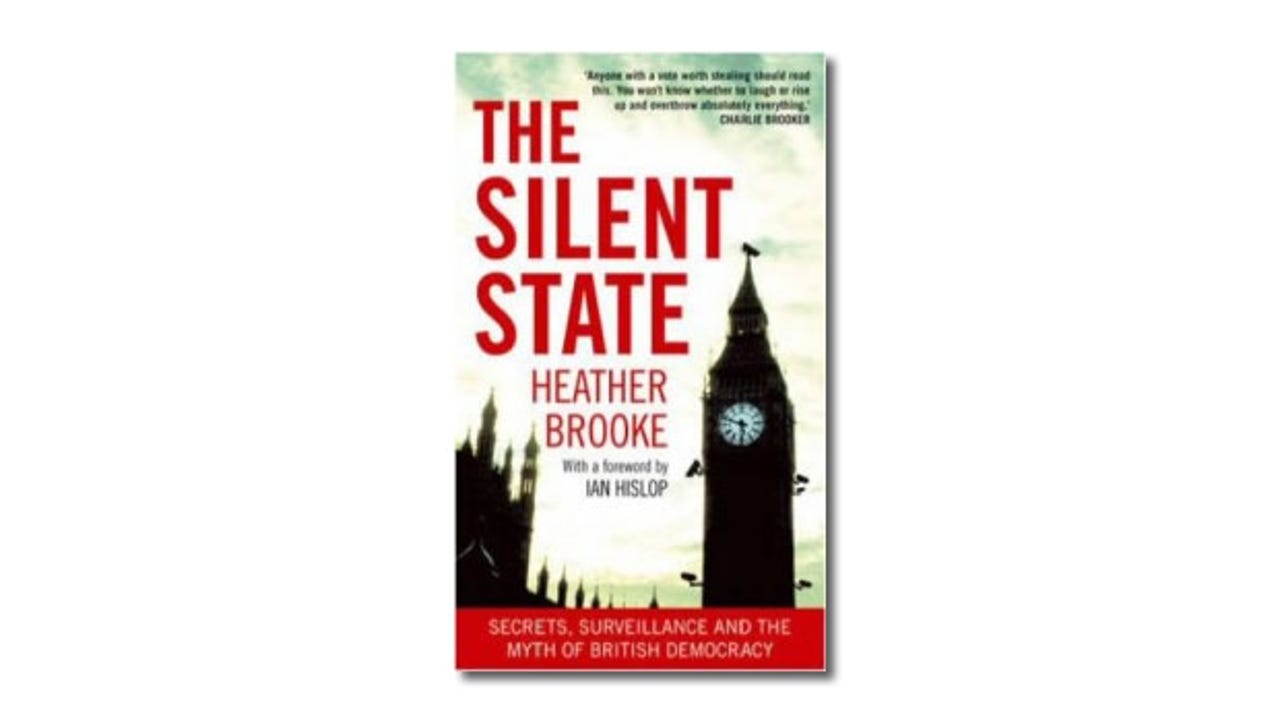Book review: The Silent State

The thing about immigrants is, they don't get the joke. Heather Brooke arrived in the UK fresh from a career in the American South as an investigative journalist covering murders and other nasty stuff. Within a short time, she found she was living in a place (Bethnal Green) where everyday quality-of-life issues like street crime, graffiti, and general dysfunction seemed to be utterly unimportant to the local council. She tried to get stuff fixed; nothing happened. She tried to get statistics and other information about what was actually going on, and nothing happened. Various people told her that expecting anything different was not how things were done here. That was when she didn't give up the first time, and wrote the book Your Right to Know: A Citizen's Guide to the Freedom of Information Act.
One failed attempt to get information about what seemed, to Brooke, to be matters of public record led to another, and one fine day she found herself calling the House of Commons to ask if she could get a look at the records of MPs' expenses. She didn't give up this time either, and some years and freedom-of-information requests later, the expenses were finally released to the Telegraph, with results we all know about.

That's the long way of saying that Heather Brooke is a hero to a lot of people who, not being gentlemen, don't quite get why this country is governed by 'gentlemen's agreement'. The Silent State — the book for which she was making the MPs' expenses inquiry — is Brooke's summation of what she's observed about how Britain is run. Here's the really short version: anti-democratic secrecy is endemic.
As an American myself, I've shared some of Brooke's astonishment at what seem to be quite bizarre and incomprehensible restrictions. For example, why can't you take notes in the public gallery at the House of Commons? But Brooke kept asking questions. Why aren't councils obliged to give their residents information about local issues of concern, such as crime statistics and black spots? Why are new courts built with less space for observers — both public and press — than those from prior centuries? And on and on through every aspect of British government.
For techies, the most immediately relevant part of The Silent State is Brooke's discussion of access to data. Compilations from the postcode database and the phone book to more obviously public data such as Hansard, transport schedules and the list of MPs' phone numbers have all been the subject of copyright claims and licensing demands. If it's not restricted, it's expensive. Either way, using it is considered to be the prerogative of a few insiders.
Here are two recent examples of the kind of obstructionism Brooke is talking about.
The first is National Rail's decision to require licensing for non-commercial uses of its API, which threatens to shut down a number of implementations.
Then there's the recent action taken against Jason Kitcat, a Green council member in Brighton and Hove, by the Conservative members of his council. Kitcat's sin was to upload selected clips from webcasts of council meetings to YouTube and include links in blog postings he wrote about the proceedings. The council claimed that, by doing so, Kitcat had used copyrighted material and violated the rules regarding the use of council resources. Kitcat was cleared by a tribunal.
In a democracy, Brooke argues, there should be an acceptance that data gathered at the public's expense belongs to the public. She finishes up with a list of basic principles to guide how Britain needs to change. See? Just not in on the joke.
The Silent State: Secrets, Surveillance, and the Myth of British Democracy By Heather Brooke William Heinemann 276pp ISBN: 978-0-434-02026-3 £12.99